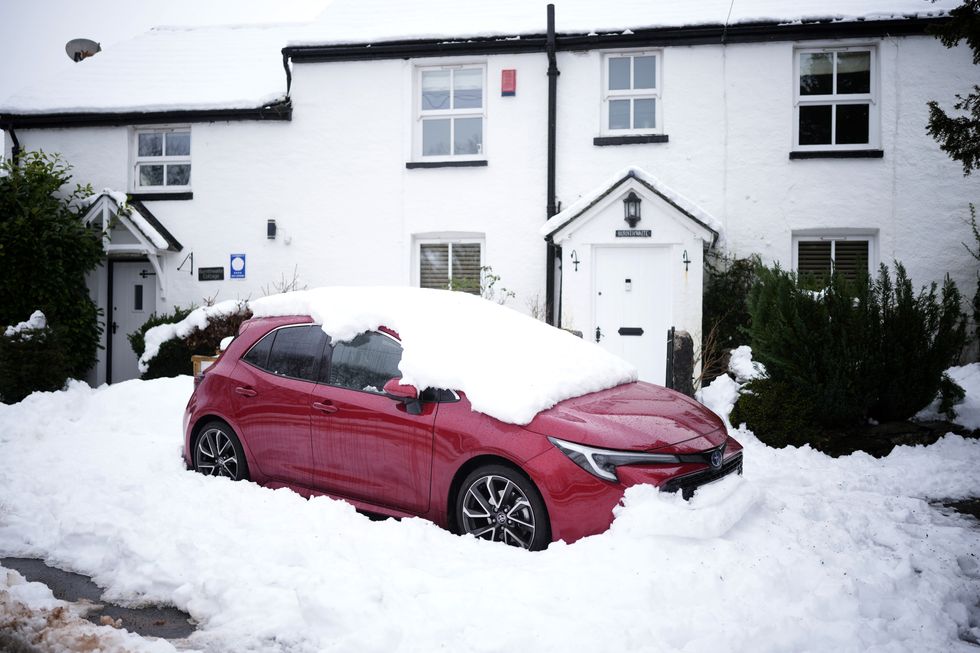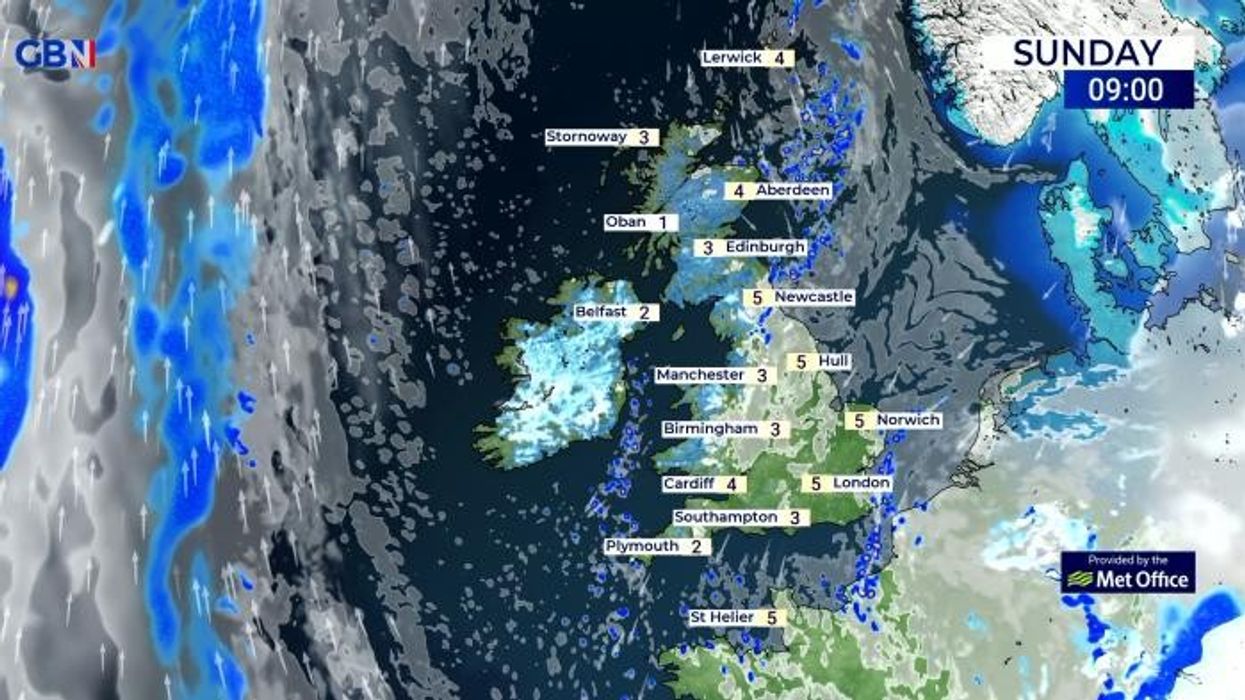Pensioners and low income Britons could be eligible for £25 during very cold weather as big freeze forecast

The £25 payments are made via the Cold Weather Payment Scheme
Don't Miss
Most Read
Latest
Pensioners and low income Britons may qualify for £25 if their area is hit by, or forecast to have, very cold weather for seven days in a row.
The payments are made automatically if there is a trigger in the local area.
Eligible people get £25 for each seven day period of very cold weather between November 1, 2023 and March 31, 2024. Qualifying people should get a payment within 14 working days after each period of very cold weather in the area.
The Met Office has issued new weather warnings, as ice and snow is expected in parts of the UK.

Eligible people get £25 for each seven day period of very cold weather if there's a trigger in their local area
|GETTY
The DWP today told GB News there have not been any Cold Weather Payment triggers thus far this month.
It’s possible to check if a Cold Weather Payment is due in one’s local area thanks to the Cold Weather Payment postcode checker.
To use this service, a person simply submits the first part of their postcode, and it will then state the results for that postcode.
Eligible people will get a payment if the average temperature in their area is recorded as, or forecast to be, zero degrees Celsius or below over seven consecutive days.
These payments are different to Winter Fuel Payments and they won’t affect other benefits.
Who is eligible for Cold Weather Payments?
Those in England, Scotland and Northern Ireland may get Cold Weather Payments if they are getting:
- Pension Credit
- Income Support
- Income-based Jobseeker’s Allowance (JSA)
- Income-related Employment and Support Allowance (ESA)
- Universal Credit
- Support for Mortgage Interest
People who live in Scotland can no longer get Cold Weather Payments, but they may get an annual Winter Heating Payment instead.
The DWP says a person will usually get Cold Weather Payments if they get Pension Credit, which is a top-up payment which low income pensioners may be eligible for.
People who get Income Support or income-based Jobseeker’s Allowance (JSA) will usually get Cold Weather Payments if they have any of the following:
- A disability or pensioner premium
- A child who is disabled
- Child Tax Credit that includes a disability or severe disability element
- A child under five living with them
Those who get income-related ESA and are in a work-related activity group or support group usually get Cold Weather Payments.
Otherwise, they might qualify if they have any of the following:
- A severe or enhanced disability premium
- A pensioner premium
- A child who is disabled
- Child Tax Credit that includes a disability or severe disability element
- A child under five living with them
LATEST DEVELOPMENTS:
Universal Credit recipients usually get Cold Weather Payments if you are not employed or “gainfully self-employed” and your partner (if you have one) is not employed or gainfully self-employed.
One of the following conditions must also apply:
- You or your partner have a health condition or disability and have limited capability for work (with or without work-related activity)
- You have a child under five iving with you
If you have a disabled child amount in your Universal Credit claim, you will be eligible for Cold Weather Payments and it won’t matter whether you or your partner are employed, self-employed or not working.
You would usually get Cold Weather Payments if you get Support for Mortgage Interest (SMI) and you’re treated as getting a qualifying benefit where one of the following applies:
- A severe or enhanced disability premium
- A pensioner premium
- You have a child who is disabled
- You get Child Tax Credit that includes a disability or severe disability element
- You have a child under five living with you











